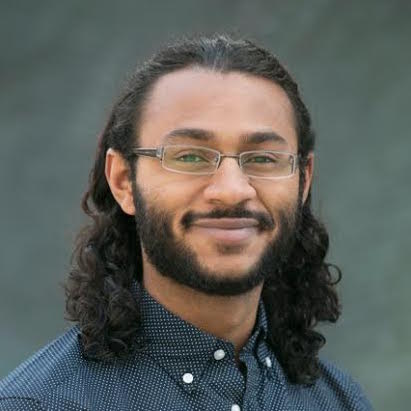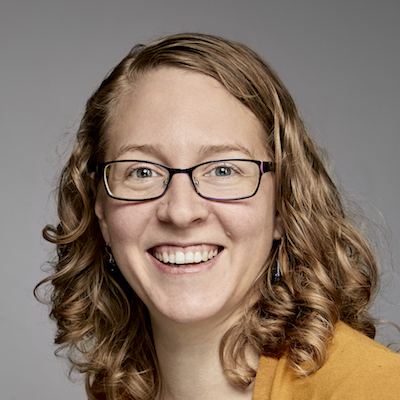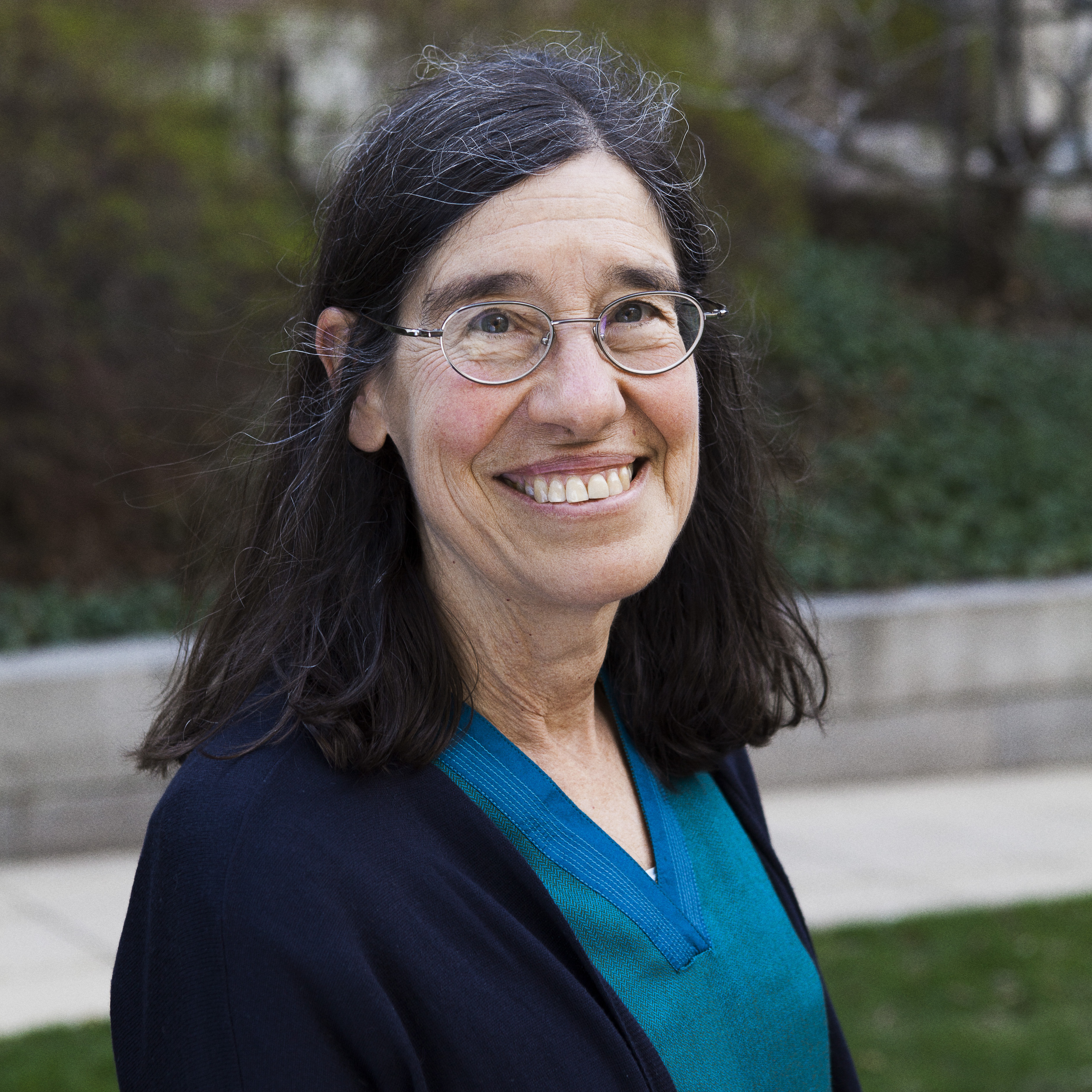 Sungjin Ahn is an Assistant Professor of Computer Science at
Rutgers University and directs the Rutgers Machine Learning (RUML) lab. He is also affiliated with Rutgers Center
for Cognitive Science. His research focus is on how an AI-agent can learn the structure and representations of
the world in an unsupervised and compositional way, with a particular interest in object-centric learning. His
approach to achieving this is based on deep learning, Bayesian modeling, reinforcement learning, and inspiration
from cognitive & neuroscience. He received Ph.D. at the University of California, Irvine with Max Welling and did
a postdoc with Yoshua Bengio at Mila. Then, he joined Rutgers University in Fall 2018. He has co-organized ICML
2020 Workshop on Object-Oriented Learning and received the ICML best paper award in ICML 2012.
Sungjin Ahn is an Assistant Professor of Computer Science at
Rutgers University and directs the Rutgers Machine Learning (RUML) lab. He is also affiliated with Rutgers Center
for Cognitive Science. His research focus is on how an AI-agent can learn the structure and representations of
the world in an unsupervised and compositional way, with a particular interest in object-centric learning. His
approach to achieving this is based on deep learning, Bayesian modeling, reinforcement learning, and inspiration
from cognitive & neuroscience. He received Ph.D. at the University of California, Irvine with Max Welling and did
a postdoc with Yoshua Bengio at Mila. Then, he joined Rutgers University in Fall 2018. He has co-organized ICML
2020 Workshop on Object-Oriented Learning and received the ICML best paper award in ICML 2012.
|
 Renée Baillargeon is an Alumni
Distinguished Professor of Psychology at the University of Illinois Urbana-Champaign. Her research examines
cognitive development in infancy and focuses primarily on causal reasoning. In particular, she explores how
infants make sense of the events they observe, and what explanatory frameworks and learning mechanisms enable them
to do so. In addition to this primary focus on causal reasoning, she is interested in a broad range of related
issues including object perception, categorization, object individuation, number, and executive-function skills.
Renée Baillargeon is an Alumni
Distinguished Professor of Psychology at the University of Illinois Urbana-Champaign. Her research examines
cognitive development in infancy and focuses primarily on causal reasoning. In particular, she explores how
infants make sense of the events they observe, and what explanatory frameworks and learning mechanisms enable them
to do so. In addition to this primary focus on causal reasoning, she is interested in a broad range of related
issues including object perception, categorization, object individuation, number, and executive-function skills.
|
 Wilka Carvalho is a PhD Candidate in Computer Science at the
University of Michigan–Ann Arbor where he is advised by Honglak Lee, Satinder Singh, and Richard Lewis. His
long-term research goal is to develop cognitive theories of learning that help us understand how humans infer,
reason with, and exploit the rich structure present in realistic visual scenes to enable sophisticated behavioral
policies. Towards this end, he is studying how object-centric representation learning and reinforcement learning
can bring us closer to human-level artificial intelligence. He is supported by an NSF GRFP Fellowship and a UM
Rackham Merit Fellowship.
Wilka Carvalho is a PhD Candidate in Computer Science at the
University of Michigan–Ann Arbor where he is advised by Honglak Lee, Satinder Singh, and Richard Lewis. His
long-term research goal is to develop cognitive theories of learning that help us understand how humans infer,
reason with, and exploit the rich structure present in realistic visual scenes to enable sophisticated behavioral
policies. Towards this end, he is studying how object-centric representation learning and reinforcement learning
can bring us closer to human-level artificial intelligence. He is supported by an NSF GRFP Fellowship and a UM
Rackham Merit Fellowship.
|
 Dieter Fox
is a professor in the Allen School of Computer Science & Engineering at the University of Washington, where he
heads the UW Robotics and State Estimation Lab. He is also Senior Director of Robotics Research at NVIDIA.
His research is in robotics and artificial intelligence, with a focus on state estimation and perception applied
to problems such as mapping, object detection and tracking, robot manipulation, and activity recognition. Dieter Fox
is a professor in the Allen School of Computer Science & Engineering at the University of Washington, where he
heads the UW Robotics and State Estimation Lab. He is also Senior Director of Robotics Research at NVIDIA.
His research is in robotics and artificial intelligence, with a focus on state estimation and perception applied
to problems such as mapping, object detection and tracking, robot manipulation, and activity recognition.
|
 Jessica Hamrick is a Senior Research Scientist at DeepMind,
where she studies how to build machines that can flexibly build and deploy models of the world. Her work combines
insights from cognitive science with structured relational architectures, model-based deep reinforcement
learning, and planning. Jessica received a Ph.D. in Psychology from UC Berkeley in 2017, and an M.Eng. and B.S.
in Computer Science from MIT in 2012.
Jessica Hamrick is a Senior Research Scientist at DeepMind,
where she studies how to build machines that can flexibly build and deploy models of the world. Her work combines
insights from cognitive science with structured relational architectures, model-based deep reinforcement
learning, and planning. Jessica received a Ph.D. in Psychology from UC Berkeley in 2017, and an M.Eng. and B.S.
in Computer Science from MIT in 2012.
|
 Irina Higgins is a research
scientist at DeepMind, where she works in the Frontiers team. Her work aims to bring together insights from the
fields of neuroscience and physics to advance general artificial intelligence through improved representation
learning. Before joining DeepMind, Irina was a British Psychological Society Undergraduate Award winner for her
achievements as an undergraduate student in Experimental Psychology at Westminster University, followed by a
DPhil at the Oxford Centre for Computational Neuroscience and Artificial Intelligence, where she focused on
understanding the computational principles underlying speech processing in the auditory brain. During her DPhil,
Irina also worked on developing poker AI, applying machine learning in the finance sector, and working on speech
recognition at Google Research.
Irina Higgins is a research
scientist at DeepMind, where she works in the Frontiers team. Her work aims to bring together insights from the
fields of neuroscience and physics to advance general artificial intelligence through improved representation
learning. Before joining DeepMind, Irina was a British Psychological Society Undergraduate Award winner for her
achievements as an undergraduate student in Experimental Psychology at Westminster University, followed by a
DPhil at the Oxford Centre for Computational Neuroscience and Artificial Intelligence, where she focused on
understanding the computational principles underlying speech processing in the auditory brain. During her DPhil,
Irina also worked on developing poker AI, applying machine learning in the finance sector, and working on speech
recognition at Google Research.
|
 Elizabeth Spelke
is the Marshall L. Berkman Professor of Psychology at Harvard University and an investigator at the NSF-MIT Center
for Brains, Minds and Machines. Her laboratory focuses on the sources of uniquely human cognitive capacities,
including capacities for formal mathematics, for constructing and using symbols, and for developing comprehensive
taxonomies of objects. She probes the sources of these capacities primarily through behavioral research on human
infants and preschool children, focusing on the origins and development of their understanding of objects, actions,
people, places, number, and geometry. In collaboration with computational cognitive scientists, she aims to test
computational models of infants’ cognitive capacities. In collaboration with economists, she has begun to take
her research from the laboratory to the field, where randomized controlled experiments can serve to evaluate
interventions, guided by research in cognitive science, that seek to enhance young children’s learning.
Elizabeth Spelke
is the Marshall L. Berkman Professor of Psychology at Harvard University and an investigator at the NSF-MIT Center
for Brains, Minds and Machines. Her laboratory focuses on the sources of uniquely human cognitive capacities,
including capacities for formal mathematics, for constructing and using symbols, and for developing comprehensive
taxonomies of objects. She probes the sources of these capacities primarily through behavioral research on human
infants and preschool children, focusing on the origins and development of their understanding of objects, actions,
people, places, number, and geometry. In collaboration with computational cognitive scientists, she aims to test
computational models of infants’ cognitive capacities. In collaboration with economists, she has begun to take
her research from the laboratory to the field, where randomized controlled experiments can serve to evaluate
interventions, guided by research in cognitive science, that seek to enhance young children’s learning.
 Sungjin Ahn is an Assistant Professor of Computer Science at
Rutgers University and directs the Rutgers Machine Learning (RUML) lab. He is also affiliated with Rutgers Center
for Cognitive Science. His research focus is on how an AI-agent can learn the structure and representations of
the world in an unsupervised and compositional way, with a particular interest in object-centric learning. His
approach to achieving this is based on deep learning, Bayesian modeling, reinforcement learning, and inspiration
from cognitive & neuroscience. He received Ph.D. at the University of California, Irvine with Max Welling and did
a postdoc with Yoshua Bengio at Mila. Then, he joined Rutgers University in Fall 2018. He has co-organized ICML
2020 Workshop on Object-Oriented Learning and received the ICML best paper award in ICML 2012.
Sungjin Ahn is an Assistant Professor of Computer Science at
Rutgers University and directs the Rutgers Machine Learning (RUML) lab. He is also affiliated with Rutgers Center
for Cognitive Science. His research focus is on how an AI-agent can learn the structure and representations of
the world in an unsupervised and compositional way, with a particular interest in object-centric learning. His
approach to achieving this is based on deep learning, Bayesian modeling, reinforcement learning, and inspiration
from cognitive & neuroscience. He received Ph.D. at the University of California, Irvine with Max Welling and did
a postdoc with Yoshua Bengio at Mila. Then, he joined Rutgers University in Fall 2018. He has co-organized ICML
2020 Workshop on Object-Oriented Learning and received the ICML best paper award in ICML 2012.
 Renée Baillargeon is an Alumni
Distinguished Professor of Psychology at the University of Illinois Urbana-Champaign. Her research examines
cognitive development in infancy and focuses primarily on causal reasoning. In particular, she explores how
infants make sense of the events they observe, and what explanatory frameworks and learning mechanisms enable them
to do so. In addition to this primary focus on causal reasoning, she is interested in a broad range of related
issues including object perception, categorization, object individuation, number, and executive-function skills.
Renée Baillargeon is an Alumni
Distinguished Professor of Psychology at the University of Illinois Urbana-Champaign. Her research examines
cognitive development in infancy and focuses primarily on causal reasoning. In particular, she explores how
infants make sense of the events they observe, and what explanatory frameworks and learning mechanisms enable them
to do so. In addition to this primary focus on causal reasoning, she is interested in a broad range of related
issues including object perception, categorization, object individuation, number, and executive-function skills.
 Wilka Carvalho is a PhD Candidate in Computer Science at the
University of Michigan–Ann Arbor where he is advised by Honglak Lee, Satinder Singh, and Richard Lewis. His
long-term research goal is to develop cognitive theories of learning that help us understand how humans infer,
reason with, and exploit the rich structure present in realistic visual scenes to enable sophisticated behavioral
policies. Towards this end, he is studying how object-centric representation learning and reinforcement learning
can bring us closer to human-level artificial intelligence. He is supported by an NSF GRFP Fellowship and a UM
Rackham Merit Fellowship.
Wilka Carvalho is a PhD Candidate in Computer Science at the
University of Michigan–Ann Arbor where he is advised by Honglak Lee, Satinder Singh, and Richard Lewis. His
long-term research goal is to develop cognitive theories of learning that help us understand how humans infer,
reason with, and exploit the rich structure present in realistic visual scenes to enable sophisticated behavioral
policies. Towards this end, he is studying how object-centric representation learning and reinforcement learning
can bring us closer to human-level artificial intelligence. He is supported by an NSF GRFP Fellowship and a UM
Rackham Merit Fellowship.
 Dieter Fox
is a professor in the Allen School of Computer Science & Engineering at the University of Washington, where he
heads the UW Robotics and State Estimation Lab. He is also Senior Director of Robotics Research at NVIDIA.
His research is in robotics and artificial intelligence, with a focus on state estimation and perception applied
to problems such as mapping, object detection and tracking, robot manipulation, and activity recognition.
Dieter Fox
is a professor in the Allen School of Computer Science & Engineering at the University of Washington, where he
heads the UW Robotics and State Estimation Lab. He is also Senior Director of Robotics Research at NVIDIA.
His research is in robotics and artificial intelligence, with a focus on state estimation and perception applied
to problems such as mapping, object detection and tracking, robot manipulation, and activity recognition.
 Jessica Hamrick is a Senior Research Scientist at DeepMind,
where she studies how to build machines that can flexibly build and deploy models of the world. Her work combines
insights from cognitive science with structured relational architectures, model-based deep reinforcement
learning, and planning. Jessica received a Ph.D. in Psychology from UC Berkeley in 2017, and an M.Eng. and B.S.
in Computer Science from MIT in 2012.
Jessica Hamrick is a Senior Research Scientist at DeepMind,
where she studies how to build machines that can flexibly build and deploy models of the world. Her work combines
insights from cognitive science with structured relational architectures, model-based deep reinforcement
learning, and planning. Jessica received a Ph.D. in Psychology from UC Berkeley in 2017, and an M.Eng. and B.S.
in Computer Science from MIT in 2012.
 Irina Higgins is a research
scientist at DeepMind, where she works in the Frontiers team. Her work aims to bring together insights from the
fields of neuroscience and physics to advance general artificial intelligence through improved representation
learning. Before joining DeepMind, Irina was a British Psychological Society Undergraduate Award winner for her
achievements as an undergraduate student in Experimental Psychology at Westminster University, followed by a
DPhil at the Oxford Centre for Computational Neuroscience and Artificial Intelligence, where she focused on
understanding the computational principles underlying speech processing in the auditory brain. During her DPhil,
Irina also worked on developing poker AI, applying machine learning in the finance sector, and working on speech
recognition at Google Research.
Irina Higgins is a research
scientist at DeepMind, where she works in the Frontiers team. Her work aims to bring together insights from the
fields of neuroscience and physics to advance general artificial intelligence through improved representation
learning. Before joining DeepMind, Irina was a British Psychological Society Undergraduate Award winner for her
achievements as an undergraduate student in Experimental Psychology at Westminster University, followed by a
DPhil at the Oxford Centre for Computational Neuroscience and Artificial Intelligence, where she focused on
understanding the computational principles underlying speech processing in the auditory brain. During her DPhil,
Irina also worked on developing poker AI, applying machine learning in the finance sector, and working on speech
recognition at Google Research.
 Rachit Dubey (panel moderator) is a graduate student at Princeton
University, working with Tom Griffiths. His research is centered around understanding internal reward functions
such as curiosity and happiness, and how people (and animals) modulate and control these rewards.
Rachit Dubey (panel moderator) is a graduate student at Princeton
University, working with Tom Griffiths. His research is centered around understanding internal reward functions
such as curiosity and happiness, and how people (and animals) modulate and control these rewards.
 Klaus Greff (panel moderator) is a Research Scientist at Google Brain in Berlin
and a PhD student at IDSIA with Jürgen Schmidhuber. His research focuses on the binding problem in neural
networks, on learning object representations, and in particular on unsupervised object perception. His work
received an outstanding paper award from IEEE Transactions on Neural Networks and Learning Systems.
Klaus Greff (panel moderator) is a Research Scientist at Google Brain in Berlin
and a PhD student at IDSIA with Jürgen Schmidhuber. His research focuses on the binding problem in neural
networks, on learning object representations, and in particular on unsupervised object perception. His work
received an outstanding paper award from IEEE Transactions on Neural Networks and Learning Systems.